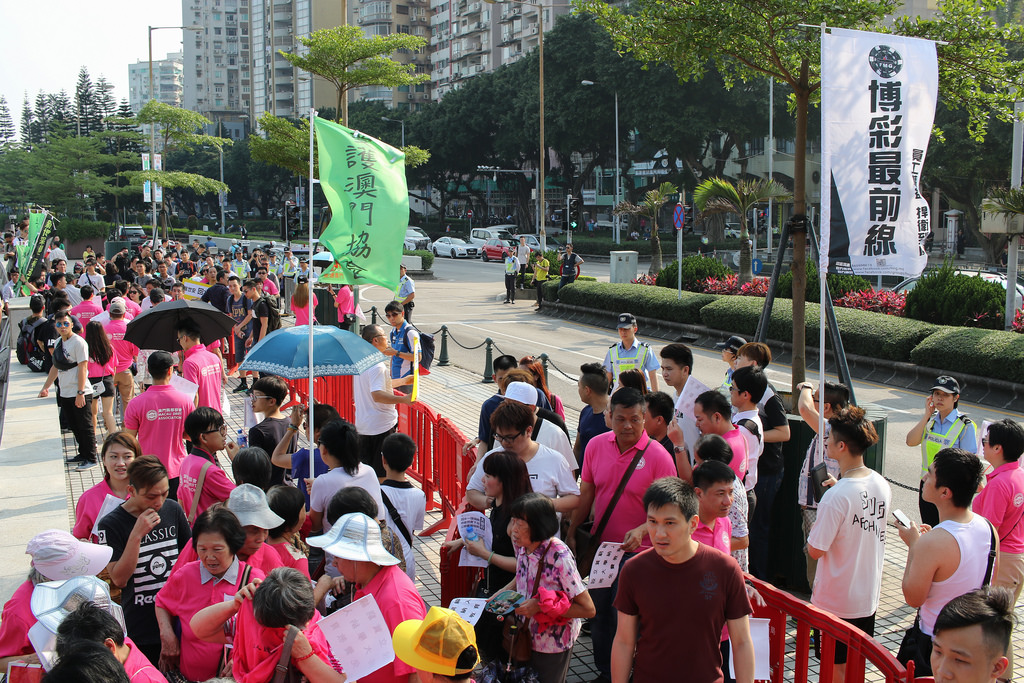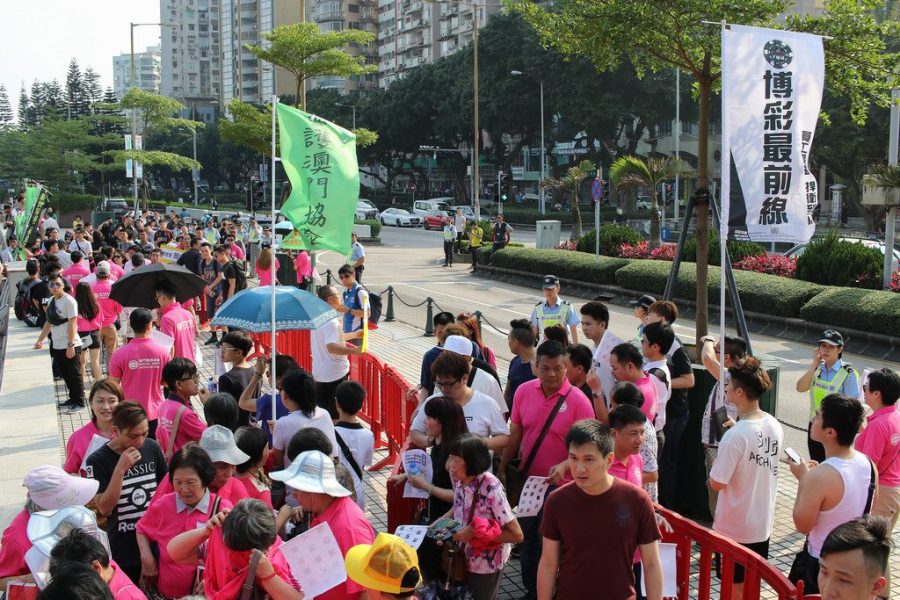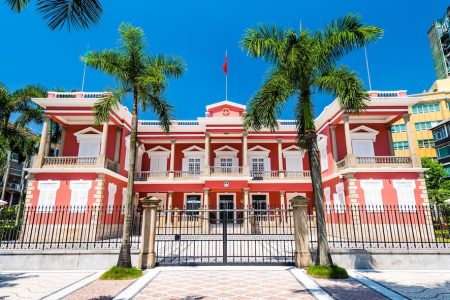The legislature passed the outline of a government-initiated bill which proposes amendments to the law on assemblies and demonstrations on Tuesday. Under the proposed amendments, groups and individuals who plan to hold an assembly or demonstration will need to inform the Public Security Police (PSP) in advance, a change from the current situation in which they need to inform the Civic and Municipal Affairs Bureau (IACM).
Secretary for Administration and Justice Sonia Chan Hoi Fan introduced the outline of the bill during a plenary session in the legislature’s hemicycle on Tuesday.
According to the current law regulating assemblies and demonstrations which was passed by the legislature under the city’s then Portuguese administration in 1993, groups or individuals who plan to hold an assembly or demonstration in the streets and other public areas or buildings are required to inform by letter the president of the Civic and Municipal Affairs Bureau between three and 15 working days in advance.
According to the Macau Post Daily, the bureau was set up in 2002 when it replaced the city’s two municipal bodies, one for the peninsula and the other for Taipa and Coloane.
According to the current law, the bureau’s president is required to inform the commissioner of the Public Security Police immediately after he or she has received the letter from a group or individual planning an assembly or demonstration.
During Tuesday’s plenary session, Chan noted that the police are responsible for ensuring public order during an assembly or demonstration. She also said that the police have the right to impose certain constraints on an assembly or demonstration while it is taking place.
Chan said that considering the situation, the government has decided to propose that groups or individuals planning an assembly or demonstration will need to inform the Public Security Police instead. Chan said that the proposed amendments aimed to improve administrative efficiency in handling the matter.
Chan insisted that the amendment bill does not aim to undermine residents’ rights to hold assemblies or demonstrations.
A total of 27 lawmakers voted in favour of the bill’s outline, while directly-elected legislators Au Kam San, Ng Kuok Cheong and Jose Maria Pereira Coutinho voted against it.
Ng noted that the most relevant aspect of any public assembly or demonstration has to do with the use of public space and “that is the reason that has always been under the [supervision of the] municipal authorities. Why are we passing this [responsibility] to the police? What is the reason that justifies the need for this [change of] attribution?” Ng asked noting the absence on the government stand of any representatives from the police or from the security secretariat.
Noting also the lack of a public consultation by the government on the matter, the same lawmaker said he did not understand how the change of competence from the IACM to the PSP could simplify the process.
Following on from Ng’s questions was Au Kam San.
“This law is 25 years old. What were the difficulties and problems faced in its application? I can’t see any problems that justify [the need] to change this law. There is no strong reason to change it and with the urgency [in which it is presented to the AL], this needs to be explained.”
As for lawmaker Pereira Coutinho, he remarked that the change “is not a simple one” as the Secretary was advocating. “This is an important change and your presentation didn’t explain anything. We want to know why, as well as what the procedure will be. Will the PSP have to inform the IACM after receiving the request […] for a public assembly or demonstration?”
As is customary, the speaker of the 33-member legislature did not vote. Two lawmakers were absent.
The three legislators who opposed the bill said that the government appeared to aim to strengthen its “suppression” of assemblies or demonstrations by proposing the transfer of the administrative power to handle letters submitted by groups or individuals to the police.
The bill will now be reviewed in detail by a standing committee before its final article-by-article debate and vote in another plenum.






